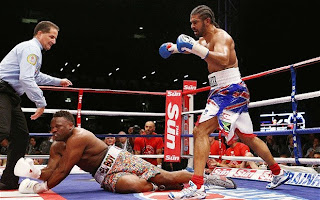 |
| Stuck in the middle: Murray stands between his two biggest threats in the title battle |
Tomas Berdych (6)
Novak Djokovic (1)
Andy Murray (3)
Jo-Wilfried Tsonga (8)
Group B
Roger Federer (2)
David Ferrer (5)
Juan Martin del Potro (7)
Janko Tipsarevic (9)
*World ranking in brackets
Group A
Murray vs Berdych
Overall head-to-head record: 4-4 (including today's result)
Grand Slam/ATP World Tour Masters head-to-head record: 2-3
Monday's 3-6 6-3 6-4 victory over the Czech fifth seed will have come as a major relief to Murray. Berdych was one of only two players to come into the competition with a superior head-to-head record against the Scot, having beaten him most notably at Roland Garros in 2010 and the Paris and Monte Carlo Masters in 2011 and 2012 respectively. The pair could meet again in the final but Berdych now has a major job on his hands to qualify.
Murray vs Djokovic
Overall head-to-head record: 7-9
Grand Slam/ATP World Tour Masters head-to-head record: 5-9
Murray may have an inferior head-to-head record against Djokovic but he can take plenty of heart from the fact that he has won four of their last seven meetings. The run includes a straight-sets semi-final triumph at the London Olympics and the dramatic five-set US Open final victory in September. The outcome of this competition's match is likely to determine the winner of Group A and may leave the loser vulnerable to elimination.
Murray vs Tsonga
Overall head-to-head record: 6-1
Grand Slam/ATP World Tour Masters head-to-head record: 4-1
With the exception of an opening round defeat in the 2008 Australian Open, Murray has witnessed nothing but success against the 27-year-old Frenchman. Victories at Wimbledon in 2010 (quarter-final) and 2012 (semi-final) came either side of a win in the Queen's Club final in 2011. There's no doubt that he'll fancy his chances again with the Great British support behind him.
Group B
Murray vs Federer
Overall head-to-head record: 10-8
Grand Slam/ATP World Tour Masters head-to-head record: 7-6
With Federer seemingly firm favourite to top Group B, Murray will most likely have to win his own group to avoid the Swiss maestro in the semi-finals. Not that he should be fearful of the great man. A superior head-to-head record overall is backed up by a 7-6 lead from their Grand Slam and ATP World Tour Masters clashes. The one aspect you do have to point to is that Federer has generally come to the fore against Murray when it's mattered most. Victories for the seventeen-time Grand Slam champion in the 2008 US Open final, the 2010 Australian Open final and the 2012 Wimbledon final will all be fresh in Murray's mind. The two previous meetings in this event have also gone Federer's way; group stage matches in 2009 and 2010.
Murray vs Ferrer
Overall head-to-head record: 6-5
Grand Slam/ATP World Tour Masters head-to-head record: 5-4
Following the capture of his first ATP World Tour Masters final in Paris on Sunday, Ferrer will be brimming with confidence and hold out genuine hope of making the last four of the competition at the very least. Murray will be aware of the fact that four of his defeats to Ferrer have come on clay and that he leads 5-1 in their meetings on hard courts. Ferrer's sole win came in the group stage of this competition last year, so there's certainly no room for complacency from Murray if he crosses paths with the Spaniard.
Murray vs Del Potro
Overall head-to-head record: 5-1
Grand Slam/ATP World Tour Masters head-to-head record: 5-1
They may have only met six times to date but Murray's superior head-to-head record against Del Potro, which includes four wins on hard courts, is enough to suggest that any potential encounter can only go one way. Having secured back-to-back titles in October on the hard courts of Vienna and Basel, Del Potro will harbour ambitions of progressing from the group stage but it will be extremely difficult for the Argentinian.
Murray vs Tipsarevic
Overall head-to-head record: 5-3
Grand Slam/ATP World Tour Masters head-to-head record: 2-0
Benefiting from Rafael Nadal's prolonged absence, the man ranked ninth in the world has a mammoth task ahead of him if he is to qualify from the group. In the unlikely event that Murray and Tipsarevic do battle in the knockout stages, a superior record on hard courts, coupled with a much stronger all-round game, should give the Scot a clear mental edge.













